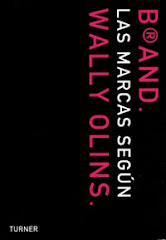The title of our last class was “Can PR ever be ethical?” this topic has been very interesting for me since I started my course in PR. As we learned in class ethics is all about dilemma, should we do this, or that? These dilemmas emerge when we have to make any decision that affects our own values or principal in life.
Ethics in general are codes to help us decide what is right from what is wrong, but at the same time ethics depend on people’s morals. Each country has their own culture, therefore, their moral must be different from other culture, this doesn’t mean that one is right and the other is wrong, it just means that we all as human beings act according to our morals and our own codes of ethics. As we learned in class “ethics is the study of morals”.
Working in the PR world makes us as practitioners, think about how should we act in certain circumstances that will happen during our careers. Therefore there are codes of ethics in the different countries, which help practitioners to make decisions. There is the CIPR (Chartered Institute of Public Relations), or another example could be PRSA (Public Relations Society of America).
After reading about this topic, it could be said that codes of conduct are guidelines for practitioners when there is an absence of laws on a certain field. The codes of conduct are generally more related to ethical moral than the law, because although the actions must be framed within the law, these actions might not be legitimate. This means that although the action is totally correct according to the law, it might be immoral according to ethics. “The advantage of such codes is found in the number of professionals who are part of designing and then implementing the standards. The disadvantage is that in achieving this breadth, specificity is often scarified.”(Seib and Fitzpatrick, 1995, p.13).
I’m very concerned about ethics in public relations, and how different practitioners act in the same circumstances. There are thousands of books about ethics related to PR, and after having done a lot of research on this issue I agree on the fact that PR practitioners can be ethical but always in a subjective way.
Ethics in general are codes to help us decide what is right from what is wrong, but at the same time ethics depend on people’s morals. Each country has their own culture, therefore, their moral must be different from other culture, this doesn’t mean that one is right and the other is wrong, it just means that we all as human beings act according to our morals and our own codes of ethics. As we learned in class “ethics is the study of morals”.
Working in the PR world makes us as practitioners, think about how should we act in certain circumstances that will happen during our careers. Therefore there are codes of ethics in the different countries, which help practitioners to make decisions. There is the CIPR (Chartered Institute of Public Relations), or another example could be PRSA (Public Relations Society of America).
After reading about this topic, it could be said that codes of conduct are guidelines for practitioners when there is an absence of laws on a certain field. The codes of conduct are generally more related to ethical moral than the law, because although the actions must be framed within the law, these actions might not be legitimate. This means that although the action is totally correct according to the law, it might be immoral according to ethics. “The advantage of such codes is found in the number of professionals who are part of designing and then implementing the standards. The disadvantage is that in achieving this breadth, specificity is often scarified.”(Seib and Fitzpatrick, 1995, p.13).
I’m very concerned about ethics in public relations, and how different practitioners act in the same circumstances. There are thousands of books about ethics related to PR, and after having done a lot of research on this issue I agree on the fact that PR practitioners can be ethical but always in a subjective way.






No comments:
Post a Comment